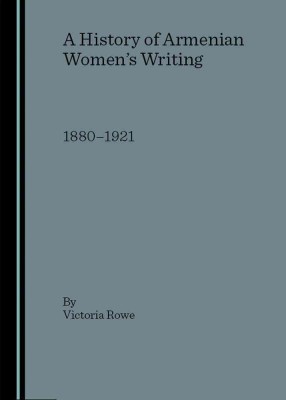| A History of Armenian Women's Writing: 1880-1921 Contributor(s): Rowe, Victoria (Author) |
|
 |
ISBN: 1904303234 ISBN-13: 9781904303237 Publisher: Cambridge Scholars Publishing OUR PRICE: $50.44 Product Type: Hardcover Published: January 2003 |
| Additional Information |
| BISAC Categories: - Literary Criticism | Middle Eastern |
| Dewey: 891.992 |
| Physical Information: 1" H x 6" W x 8.2" (1.10 lbs) 320 pages |
| Themes: - Cultural Region - Middle East |
| Descriptions, Reviews, Etc. |
| Publisher Description: A History of Armenian Women's Writing: 1880-1921 introduces the reader to the wealth and diversity of women's writing in Armenian in the late nineteenth and early twentieth centuries. The volume focuses on six Armenian women writers-Srpouhi Dussap, Sibyl, Mariam Khatisian, Marie Beylerian, Shushanik Kurghinian and Zabel Yesayian and these authors' novels, short stories, poems and essays. The study contends that Western and Eastern Armenian women writers, while not displaying a uniformity of opinion and vision, nevertheless found inspiration in the activism, writings and arguments of one another and form a literary genealogy of women's writing in Armenian. The study has several objectives. For general readers and those interested primarily in the historical account it provides a chronological description of the formative period of modern Armenian women's writing beginning in 1880 with the publication of a series of articles on women's education and employment by Srpouhi Dussap and concludes with the physical dislocations and psychological traumas of the Armenian Genocide in 1915 and the fall of the first independent Republic of Armenia in 1921. On another level the book concentrates on disentangling the contemporaneous intellectual debates about Armenian women's proper sphere. The author argues that the role of the Armenian woman was central to debates about national identity, education, the family and society by Armenian writers and women writers sought to participate in and guide this discourse through literary texts. |